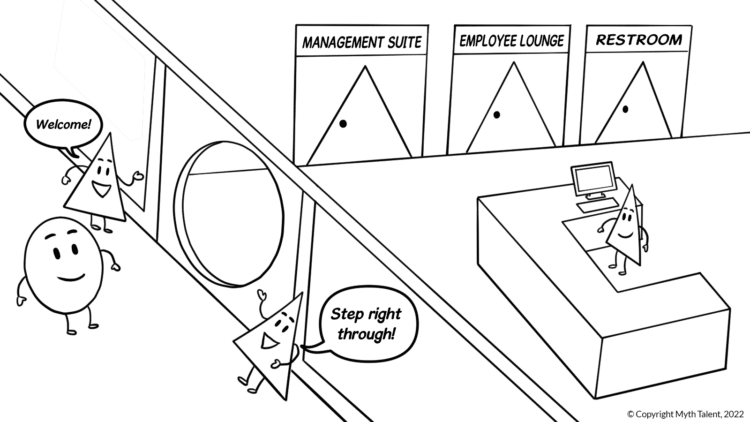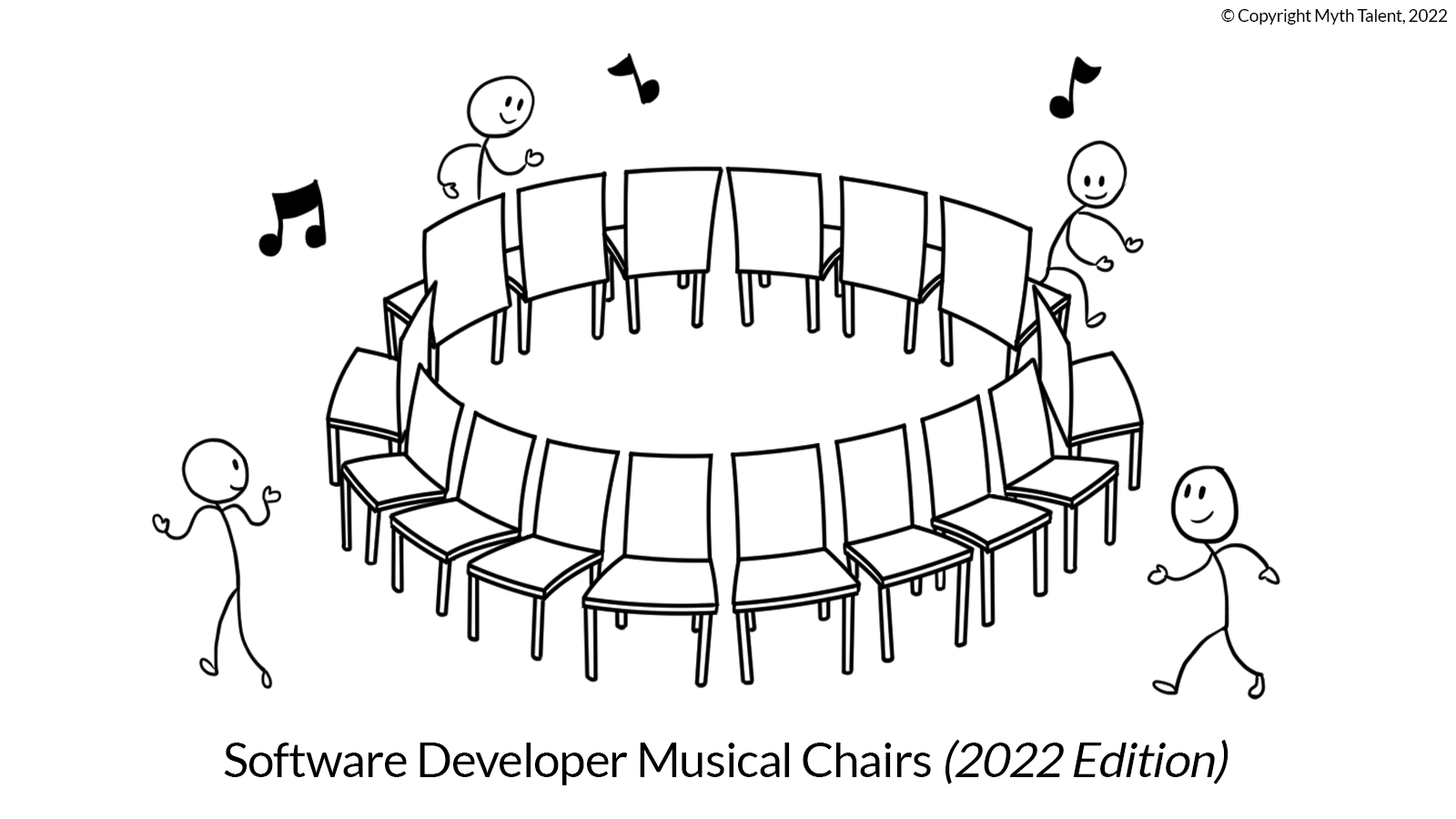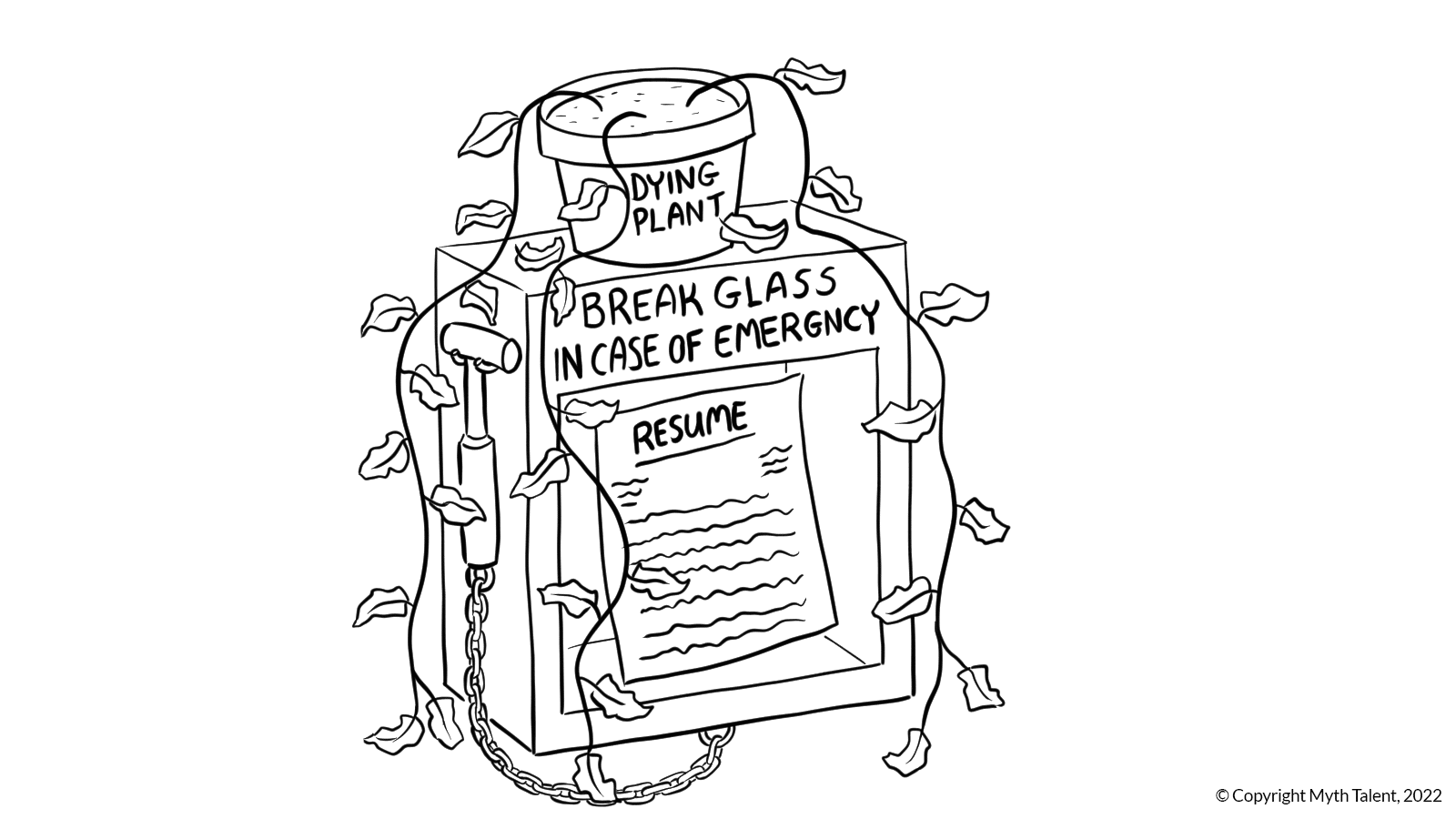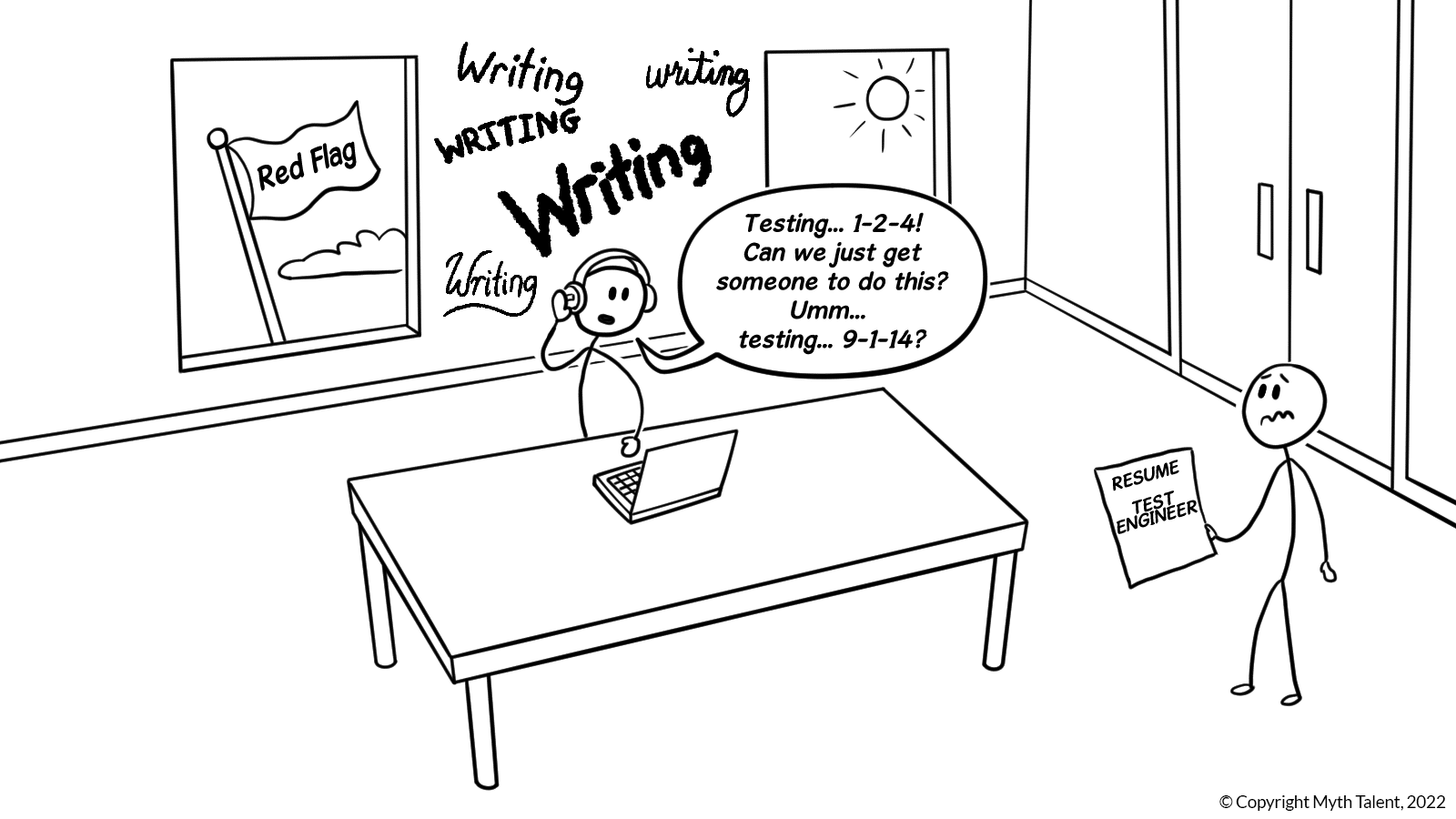
Past the Front Door: The Most Valuable Diversity Initiative
Past the Front Door: The Most Valuable Diversity Initiative
by Robin Macklin
When we’re meeting prospective new clients, we’re often asked “can you help us recruit for diversity?” We respond to all of them in the same way, with a question of our own: “What are you doing to foster an environment that provides equal opportunity to everyone who walks through the door?” Because this is a key criterion in our decision to advocate for a company, to guide people toward it.
I love when something that feels right is good for business. I think all of our client companies invest time and resources in diversity, equity, and inclusion (DEI), and I think that to all of them, it feels right. But companies cannot make large investments for that reason alone. Expensive initiatives must benefit the bottom line. This one helps to solve a number of challenges, including one of their biggest: It’s really hard to hire experienced software developers. A solid DEI effort increases supply. It’s that simple.
We think there’s some market change on the horizon, though. Many universities and bootcamps have been working for a while to provide the requisite education to people in under-represented groups. Most of those who stick with it will develop some senior level developer skills. One day soon, applicant pools will look different.
But the senior developer shortage will not be solved on that day, at least not by “increased supply”, alone. Neither will the diversity problem. Improving recruitment processes is necessary, but it’s the easy part. Companies must look beyond them, to the ongoing, day to day work experience of their employees. The organizations that promote equitable environments will be the ones that can tap into the diverse senior level professional pool that is currently under construction.
Any that do not will fail a simple sniff test – and in the small world we live in, word will spread fast, and their recruiters’ inboxes will shrink. Or worse for these companies, they won’t. Historically underrepresented people will apply and get hired. Then, the culture will keep them outside of an invisible but solid circle, inside of which is the best experience that the company has to offer. Their enthusiasm for the job will wane, and their work will reflect it. That feeling will infect others, and eventually it will become the energy that the company is known for, and company leadership will likely only see this in hindsight. That will be an expensive day.
While intentional acts of bias are still perpetrated in some companies, our business development rubric weeds out such organizations well before any contracts would be signed. So we don’t encounter them in the midst of our searches. The issues we help people to navigate are created despite good intentions.
While there aren’t any unwritten rules on these teams that, say, keep people of color off the high profile projects, the unexamined, unimproved culture can hinder an affected person’s development of a social network, which leaves them on the margins while others are organically developing mentor-mentee relationships or having extemporaneous discussions that seed creative solutions to their shared challenges.
Here are a few simple examples of actual exclusionary cultural elements that we have seen. To be clear: No one at Myth is judging people for doing any of them. The inequities arise only when they are endorsed by an employer, and become part of the work experience:
Alcohol.
Kegs on Fridays, in the grassy area outside the office. Or even on Mondays through Fridays, in a room within the office. Drinks at company outings. Drinks at mini-conferences. We’ve seen all of these and more. This is not about judging people for drinking and it’s not an indictment of alcohol. It’s about problems created when drinking is endorsed by an employer or manager. Some people abstain for one or more of a myriad of health reasons. Others subscribe to religious prohibitions on drinking. Sure, they can simply just “not drink”, but what about the many non-drinkers who need or want to avoid even proximity to alcohol? What about the all too common woman who is uncomfortable with the way judgment and behavior is altered by alcohol? What about just being forced to be the one with the soda?
If an employee chooses to avoid alcohol-infused activities altogether, then they lose out on the benefits of time spent with colleagues, which is available to those who have a different relationship with alcohol.
Sports.
We have encountered this, in organizations small and large, new and established. Golf outings, for example, can help solidify relationships – except that for those who have never played golf, or those who have a physical disability. For them, the opportunity could look like a stressful burden. Even if they participate, they are starting behind the eight ball. It’s not equitable.
Video Games.
Some teams often hang out after work hours by gaming together. No one at Myth thinks people “should” avoid what they enjoy, period. But if the games are rife with gun play, drinking, sexualization, or other polarizing themes, then a number of people will avoid them. People are free to do whatever they want after work. But if it’s endorsed by the company in any way whatsoever, the pressure is on. How? Perhaps there’s a Slack channel dedicated to it. Or a flier by the water cooler. Worse, what if the team-lead who’s responsible for your year-end review is an enthusiastic participant? And you are the only one on the team who doesn’t spend all those hours having fun alongside them?
The organizations that do not look beyond who they invite through the door, to the experience they provide them after they have stepped through it, have a growing disadvantage. Those that do will be employers-of-choice.
On a selfish but relevant note: Everything we do at Myth is geared to help people to teams where they are inspired to do things that the employer values. Everything. So we need to partner with companies that want to build a comprehensive approach to DEI, to maximize our ability to advocate for every candidate we support, demographics notwithstanding. We’re in the relationship business and this increases the value of our relationships. This is great for business. And it feels right.
© Myth Talent, 2024



